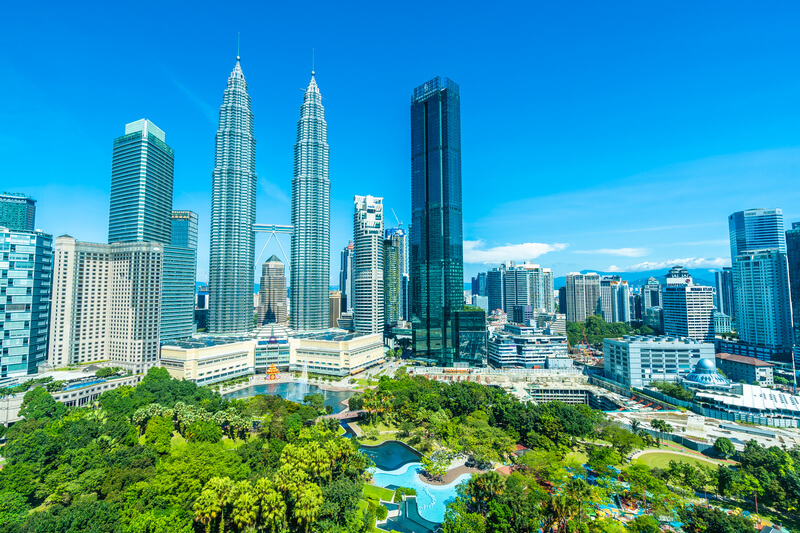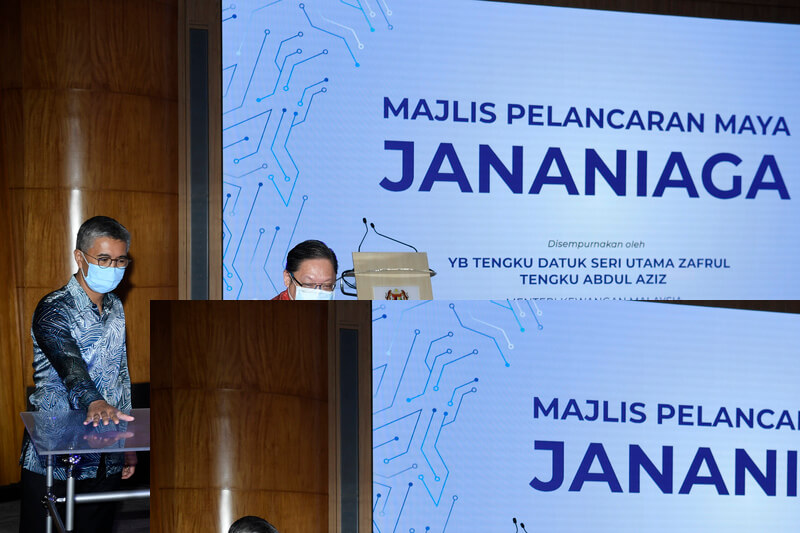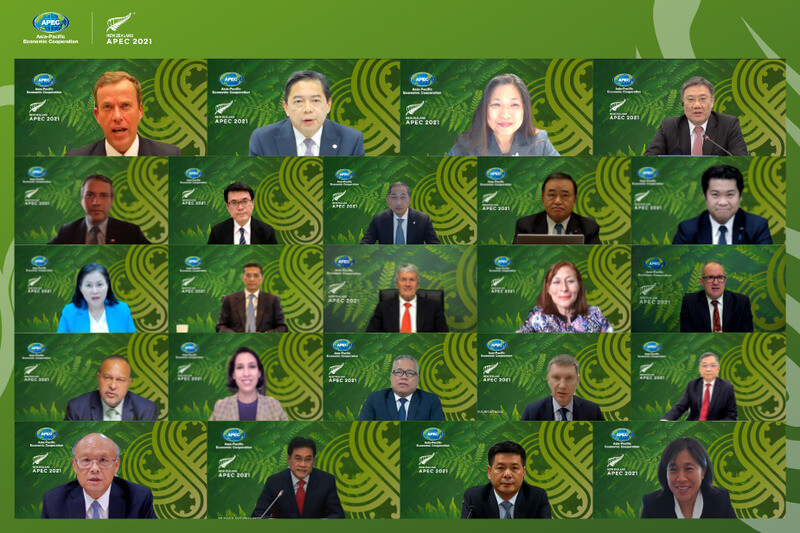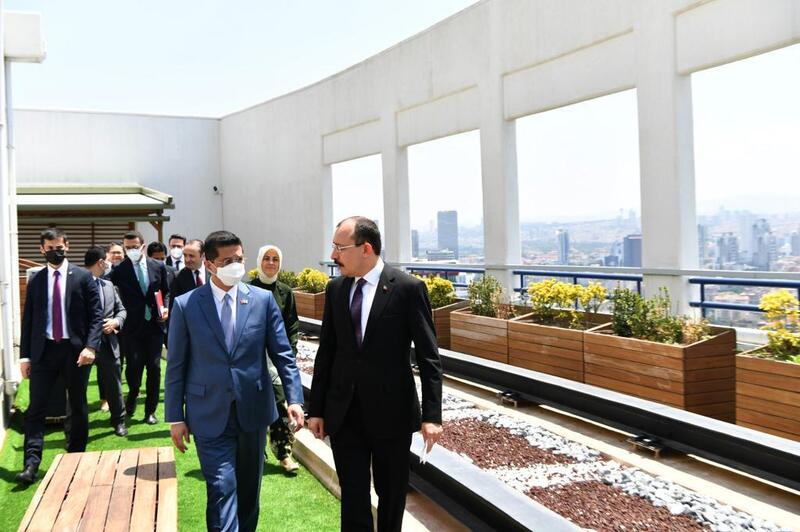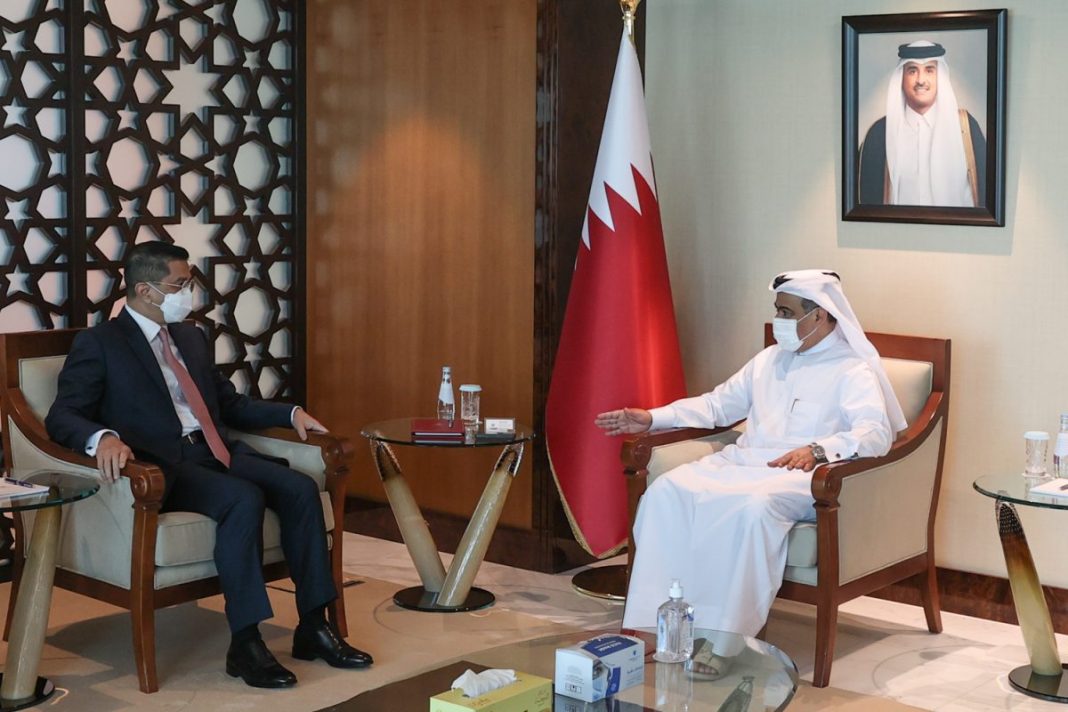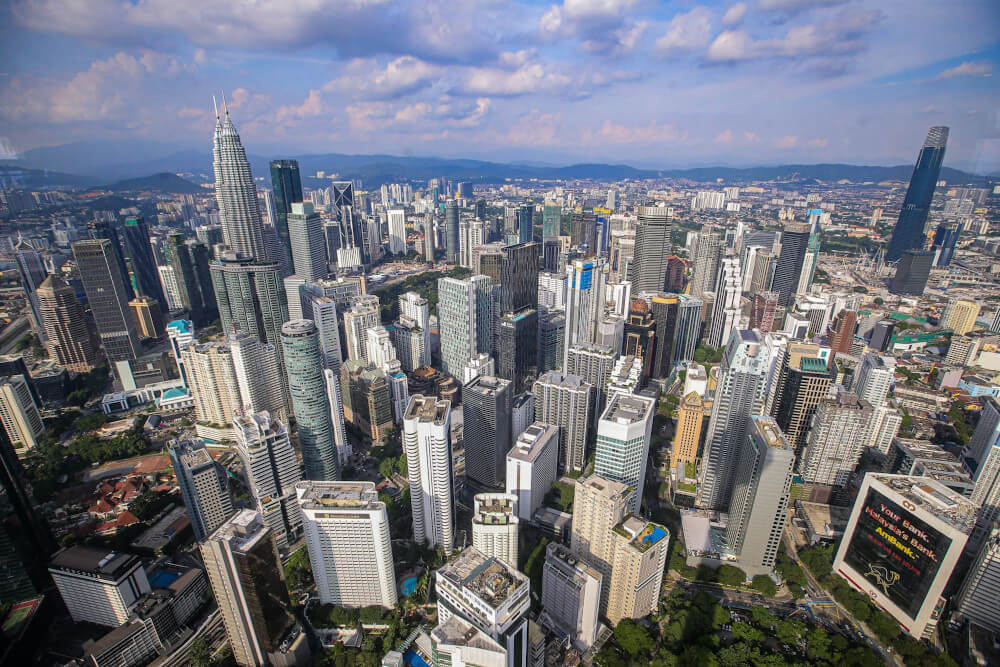Malaysia Records RM80.6 Billion Approved Investments
Aggressive Strategies to Attract High-level Investments from Both Foreign and Domestic Investors Pays Off

The Honourable Dato' Seri Mohamed Azmin Ali, Senior Minister and Minister of International Trade and Industry, presented at the Cabinet today on the impressive investment approvals for the first quarter (Q1) of this year, despite the unprecedented economic challenges caused by the COVID-19 pandemic. The members of the Cabinet endorsed the Q1 2021 approved investment by responding optimistically that Malaysia will successfully weather the storm with every Malaysian’s steel effort in boosting the economy.
Malaysia recorded a total of RM80.6 billion worth of approved investments in the manufacturing, services and primary sectors in the Q1 2021, a surge of 95.6 per cent from the same period last year (RM41.2 billion).
The continued aggressive strategies to attract high-level investments from both foreign and domestic investors are exhibiting promising results. These approved investments involved 993 projects and are expected to generate 32,557 job opportunities.
Malaysia remains a competitive investment location for foreign investors despite the multiple headwinds on the global front. Total approved foreign direct investments (FDI) in the manufacturing, services and primary sectors increased by 383.4 per cent to RM54.9 billion for the period of January – March 2021 from RM11.4 billion in the same quarter last year. Singapore (RM43.1 billion), Netherlands (RM5.0 billion), the Republic of Korea (RM4.3 billion), Chinese Taipei (RM0.5 billion) and Hong Kong (RM0.3 billion) were the top five countries in accordance to reporting by the immediate source of FDI. Investments from Singapore include one 100 per cent Chinese owned megaproject, where the source of funding is made through its affiliate located in the country. Meanwhile, domestic direct investments (DDI) made up the rest of RM25.7 billion, contributing 31.9 per cent to the total approved investments in all three sectors. Five (5) states; Kedah, Selangor, Sarawak, Sabah and W.P. Kuala Lumpur contributed RM68.4 billion (84.9 per cent) to the total approved investments for January – March 2021.
The manufacturing sector leads the investments for Q1 2021, recording RM58.8 billion, followed by the services sector at RM15.6 billion and the primary sector at RM6.2 billion.
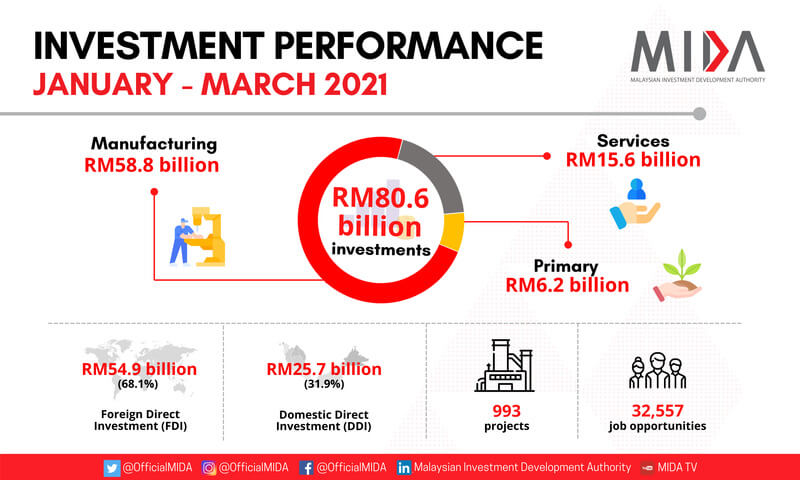
Manufacturing Sector
The positive investment growth for Q1 2021 was driven by the robust performance of the manufacturing sector that soared by 126.8 per cent compared to Q1 2020. Malaysia’s manufacturing sector recorded approved investments of RM58.8 billion from 246 manufacturing projects for Q1 2021 compared to RM25.9 billion from 226 manufacturing projects in the same period last year. It is important to note that amid pandemic, FDI accounted for 88.9 per cent or RM52.3 billion of the total approved investments in the manufacturing sector while the remaining 11.1 per cent, or RM6.5 billion were from domestic sources.
The majority of these investments were in the electrical and electronics (E&E) (RM47.0 billion), fabricated metal products (RM4.9 billion), rubber products (RM3.3 billion), chemicals and chemical products (RM1.1 billion), transport equipment (RM0.5 billion), food manufacturing (RM0.4 billion), machinery and equipment (RM0.4 billion) as well as paper, printing and publishing (RM0.2 billion). These industries make up 98.3 per cent of total approved investments for the sector.
Malaysia has also consistently pursued more capital-intensive projects and those that support the sustainable development agenda of the nation. This is reflected by the increasing capital investment per employee (CIPE) ratio to RM2,201,838 in the first three months of 2021 from RM1,625,162 during the same period last year.
The approved manufacturing projects will create 26,689 job opportunities. The new workforce includes 943 managerial positions and 1,042 engineers in the electrical and electronics, mechanical and chemical disciplines, reflecting the higher value chain transition of the manufacturing sector. The approved manufacturing projects will also require 3,518 skilled craftsmen such as plant maintenance supervisors, tools and die makers, machinists, IT personnel, quality controllers, electricians and welders. Major industries which require the most skilled workforce are E&E, rubber products, fabricated metal products, transport equipment and machinery and equipment.
In terms of recipients of approved investments in the manufacturing sector, Kedah registered the highest level of investments with RM42.4 billion, followed by Sabah (RM4.3 billion), Selangor (RM4.0 billion), Melaka (RM3.4 billion), and Johor (RM1.7 billion). Collectively, these states contributed 95.1 per cent or RM55.8 billion to the total approved investments that will fund 165 projects. These investments are set to create 19,273 job opportunities, making up 72.2 per cent of the total employment in the manufacturing sector.
The leading sources of foreign investments in the manufacturing sector were Singapore, the Republic of Korea, the Netherlands, Chinese Taipei, the People’s Republic of China, the United States of America, Switzerland, Denmark, Germany and Hong Kong. These ten countries jointly accounted for 99.8 per cent or RM52.1 billion of total foreign investments approved in the manufacturing sector for this period.
The confidence of FDI in Malaysia has been solidifying in the manufacturing sector, as foreign investors are increasingly reflecting in long term investments. One of the notable projects is a new manufacturing project by SK Nexilis from the Republic of Korea, a copper foil producer for electric vehicle (EV) battery manufacturing. The proposed facility in Malaysia will fully implement the RE100 initiative, to commit to 100 per cent renewable electricity. The company's presence will attract more investors to complete Malaysia's EV battery manufacturing supply chain, turning the country into high precision and high-quality copper foil hub for niche applications.
Another quality project approved is Risen Energy, one of the pioneers in the solar industry with extensive expertise in photovoltaic R&D and end-to-end solutions for the entire solar value chain manufacturing. The company is the first investment approved under the PENJANA Scheme, which was launched on 5 June 2020 in supporting the relocation of international investment projects to Malaysia. Risen Energy is set to produce the latest bi-facial technology solar products to cater to the growing global market. This project will boost employment opportunities and benefit the local businesses to become part of their global value chain.
Services Sector
The services sector, on the other hand, contributed 74.2 or per cent or 737 of the total number of approved projects in the first quarter of 2021. These approved services projects are expected to create 5,669 jobs for the economy. Domestic investments made up the largest portion, recording RM15 billion or 96.2 per cent of the total approved investments for the services sector during this period. The remaining 3.8 per cent were from foreign sources. The total investments approved in the services sector recorded an increase of 3.5 per cent from the approvals recorded for the same period in 2020.
Increases in investments were recorded in several services sub-sectors, namely financial services, distributive trade, education services, real estate and global establishments. Collectively, the leading contributors include real estate (RM8.9 billion), financial services (RM2.7 billion), utility (RM2 billion), support services (RM1.2 billion) and distributive trade (RM0.5 billion).
For the purpose of streamlining investment data, a new sub-sector, namely information and communications, has been redefined, taking in a combination of telecommunications sub-sector and Multimedia Super Corridor (MSC) status projects; thus adjusting the total number of sub-sectors under the services sector to 12. This new sub-sector includes publishing, programming and broadcasting, telecommunications, computer programming, consultancy as well as information services activities, which are in line with the Malaysian Industry Classification Standards Code (MSIC) 2008, set up by the Department of Statistics Malaysia.
Primary Sector
The approved investments in the primary sector registered a significant increase of 3,097.3 per cent from RM0.2 billion in 1Q 2020 to RM6.2 billion in 1Q 2021. Investments from domestic sources continue to dominate with a total amount of RM4.2 billion or 67.7 per cent, while foreign investments contributed RM2 billion or 32.3 per cent. The primary sector was led by the mining subsector with approved investments of RM6.1 billion.
Conclusion
The upward trend of COVID-19 infections has caused a global economic upheaval, across every level of societies. Governments worldwide are intensifying efforts to curb the infection with an ultimate objective to restore their economies amidst the healthcare of their people. The challenge remains to recharge the performance of the economic sectors to the pre-pandemic era.
“In Malaysia, as we continue the battle against the COVID-19 pandemic, the country remains a primary investment destination and strategic gateway for investors. The country is steadfast in providing investors with modern-day requirements and equipment. Its persistence towards engaging emerging technologies proves to be a great advantage to manufacturers in the country. The unique value propositions as a high-tech investment and global operations hub will entice a sustainable stream of quality investment activities in the country.” said The Honourable Dato' Seri Mohamed Azmin Ali, Senior Minister and Minister of International Trade and Industry.
“With our pro-business, prudent and pragmatic policies, Malaysia serves as the ideal partner for investors to do business in the region. The Government, through MIDA, will lend its expertise in executing the on-going reform initiatives as well as the newly developed blueprints and policies, to enhance the country’s competitiveness, promoting investments and accelerating national economic development in line with the National Investment Aspirations (NIA),” added the Senior Minister.
As of March 2021, MIDA has in the pipeline, 988 projects with proposed investments of RM54.4 billion in the manufacturing and services sectors. Malaysia’s economy is expected to bounce this year with a GDP projection ranging between 6.3 per cent and 7.5 per cent based on the projection by International Monetary Fund, World Bank and S&P Global Ratings, positioning the country to be the fastest-growing among the ASEAN-5 countries.
About MIDA
MIDA is the government’s principal investment promotion and development agency under the Ministry of International Trade and Industry (MITI) to oversee and drive investments into the manufacturing and services sectors in Malaysia. Headquartered in Kuala Lumpur Sentral, MIDA has 12 regional and 20 overseas offices. MIDA continues to be the strategic partner to businesses in seizing the opportunities arising from the technology revolution of this era. For more information, please visit www.mida.gov.my.



